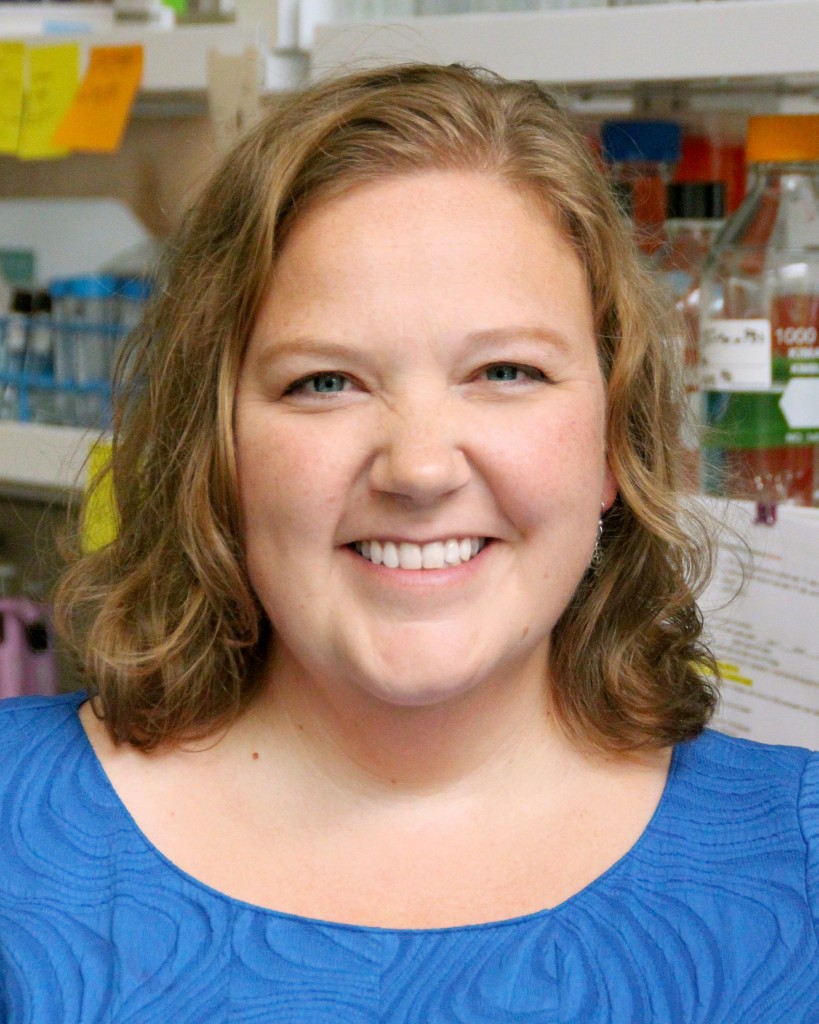New Faculty Profiles showcase GSA members who are establishing their first independent labs. If you’d like to be considered for a profile, please complete this form on the GSA website.
Elizabeth Ables
Assistant Professor of Biology (since 2013)
East Carolina University
Lab website
Research program:
Tissue-resident stem cells are a special population of cells that allow tissues to regenerate new cells when old cells die or become damaged. A wide variety of regenerative signals promote stem cell function, but the molecular mechanisms remain largely unclear. My lab therefore seeks to understand a fundamental question in stem cell biology: how do tissue-resident stem cells sense and respond to physiological change? While many studies have investigated the regulation of stem cells by local signaling pathways, we are only beginning to ascertain the impact of systemic signals on tissue-resident stem cells. My lab is particularly interested in understanding how steroid hormone signaling regulates stem cell fate and function. To study stem cells in their native environment, we use the germline and follicle stem cells of the Drosophila melanogaster ovary as models. We use genetic and cell biological approaches to assess in vivo how ecdysone, a classic Drosophila steroid hormone, helps orchestrate cell proliferation and maintenance of the stem cell fate.
I am always looking for talented students to join our team. We have openings for students to pursue either Masters or Doctoral degrees. (Contact)
“My favorite thing about science is that there is always something new to learn. I am fascinated by new discoveries, and love reading new (and old) scientific literature — both in and outside of my specific field. My job is basically a 60/40 mixture of research and teaching. This is a great advantage for me, because my research and my teaching really influence each other. I pull examples from my research field into my classroom, and find concepts in my classroom that make me think about my research in a new light.” – Elizabeth Ables on her favorite part of her work
Role of GSA in your career:
Becoming a member of GSA really introduced me to the power of model organisms, both for basic science research and as an important illustration for biology education. I had the opportunity to give a platform talk at one of the first Annual Drosophila Research Conferences that I attended, and that incredible experience really motivated me to pursue deeper, fundamental scientific questions in my research. Now as a new PI, I really rely on GSA for networking, publishing, and new opportunities to broaden my teaching and research skills. In particular, GSA’s education initiatives (the GENETICS Primer series, education workshops at fly meetings, and GSA PREP) have really helped me think about how to teach cell biology and genetics in a meaningful way. I think my students really benefit most from me being a GSA member, but it has also helped open my career to new avenues outside of traditional academic research.
Previous training experiences:
- Undergraduate – St. Andrews College
- Masters in Biology – University of North Carolina at Wilmington, Shafer Lab (Developmental transitions in crustaceans)
- PhD – Vanderbilt University, Gannon Lab (mouse pancreas development)
- Postdoc – Johns Hopkins University, Drummond-Barbosa Lab (Drosophila germline stem cell regulation)
Teaching:
I teach two courses per year, both in cell biology (one at the undergrad level, and one at the graduate level). I also organize a monthly Reproductive Biology research club, and help lead a weekly Molecular/Cellular/Development journal club.
Interests outside of work:
I spend time outdoors, chasing after my daughter! My husband and I also participate together in vocal and instrumental choirs, and love to spend time in the kitchen.































